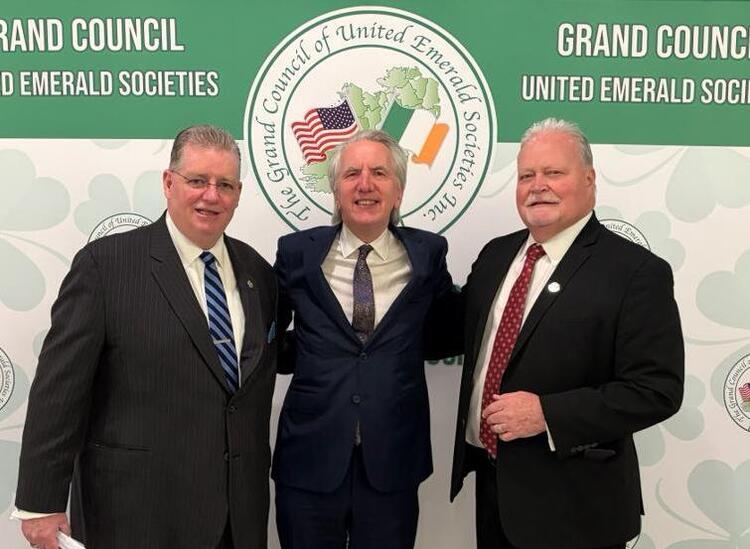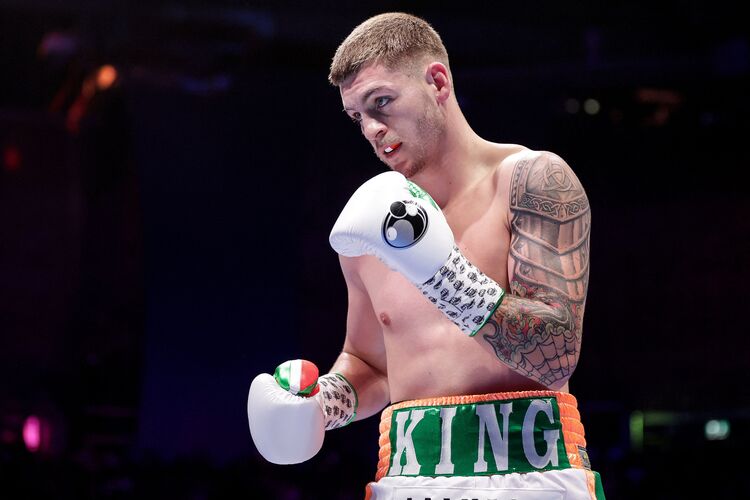Brian Cliff.
Page Turner / Edited by Peter McDermott
Back in 1985, a “deeply well-informed observer like John Gray, the head librarian at Belfast’s esteemed Linen Hall Library,” Brian Cliff writes, “could plausibly open a review” with the line, “The detective novel is a singularly non Irish genre.”
Cut to Trinity College Dublin in November 2013, and the festival organized there by Cliff and Professor John Waters of Glucksman Ireland House NYU. “Eighteen Irish crime writers (and one Irish-American) appeared on four panel discussions and the festival closed with a public interview between John Connolly and the Irish-American author Michael Connelly,” Cliff recalls in his study “Irish Crime Fiction.” About 500 attendees signed up for the festival’s events and “there was significant print, radio and television coverage.”
And yet, Cliff continues, “despite increasing coverage in the book review pages and increasing sales, very little critical discussion of Irish crime fiction has yet been published.” He writes later, “It is particularly unfortunate that Irish literary scholarship has so little to say about this genre…”
“Irish Crime Fiction” is an attempt to rectify that and Cliff hopes that future studies can build on his book. “Irish crime fiction has significant audiences at home and abroad, and both Irish Studies and crime fiction scholarship will benefit from addressing these texts and their relationships to those audiences.”
Cliff has also co-edited with Elizabeth Mannion the forthcoming essay collection “Guilt Rules All: Irish Mystery, Detective, and Crime Fiction” (Syracuse).
And he told the Echo, “I’m currently writing a book about community and contemporary Irish literature, looking at ways that recent Irish literature doesn’t always fit the various categories of national identity that have long preoccupied academic studies.”
Cliff, who is now based on the West Coast, added, “I DJ at KALX-FM, and am working on several writing projects. Before moving here, I was incredibly lucky to have had a permanent teaching post at Trinity from 2007-2019, where I helped start the Irish Studies degree with an extraordinary group of colleagues.”

Brian Cliff
Date of birth: 1973
Place of birth: Evanston, Ill.
Spouse: Marni
Children: Maura
Residence: Berkeley, Calif.
Published works: co-edited (with Emilie Pine) the bonus materials for the reprint of Emma Donoghue’s wonderful novel “Hood”; co-edited “Synge and Edwardian Ireland” (with Nicholas Grene); various articles on writers including Paul Muldoon, Deirdre Madden, Frank McGuinness, Tana French, John Connolly, and Liz Nugent.
What is your writing routine? Are there ideal conditions?
I’ve not yet mastered writing in cafes and libraries, though I should. I write at home, usually in two chunks of time: first thing (after coffee), before the day’s practical needs crowd in, and in the evening, when everything’s stilled again.
Name three books that are memorable in terms of your reading pleasure. Emma Donoghue’s “Hood”; Paul Murray’s” Skippy Dies”; Emilie Pine’s “Notes to Self.”
What book are you currently reading?
About 12, for better or worse. I just finished Jane Casey’s “Cruel Acts,” Patrick Radden Keefe’s “Say Nothing: A True Story of Murder and Memory in Northern Ireland,” John Connolly’s “The Book of Bones,” Lisa Lutz’s “The Swallows,” and Lauren Wilkinson’s “American Spy.” They’re wildly different books in many ways, and together they show crime fiction’s scope and breadth.
Is there a book you wish you had written?
On some level, all of them. I’ll never write a novel, and so in a sense I’m impressed even by the bad ones.
If you could meet one author, living or dead, who would it be?
Can I cheat? For a dead author, I’d say Primo Levi, whose works were my first real encounter as an undergraduate with a sustained moral view of the world that was at once complex and compellingly lucid. Now that his memoir “The Beautiful Ones” is out, Prince is an author, and would – obviously – have been memorable to meet. There are too many intriguing living authors to name one without giving offense to the rest.
What book changed your life?
One is Roy Foster’s “Modern Ireland, 1600-1972.” It might not keep you up all night, and the study of Irish history has changed a lot since its publication, but it was the text for the Irish history course I took as a sophomore at the University of Michigan. Although I stumbled into that course looking to fulfill requirements, it was the experience – a passionate professor, and rich material – that started me on a career in Irish Studies. I’d also name Michael Chabon’s “The Amazing Adventures of Kavalier and Clay,” a stunning sprawl of a book that – along with Paul Muldoon’s long poem “Immram” – stirred my interest in graphic novels and crime fiction. When I was 14, stumbling on (i.e., stealing) my older cousin’s copy of Hunter S. Thompson’s “Fear and Loathing on the Campaign Trail, ’72” opened up a wide new world of reading on politics and music.
What is your favorite spot in Ireland?
My time living in Ireland was very Dublin centered, so I have fond memories of the front snug in Slattery’s pub in Rathmines, the back room at the Stag’s Head, El Bahia Moroccan restaurant on Wicklow Street, and Hobart’s diner (of blessed memory) in Ranelagh.








